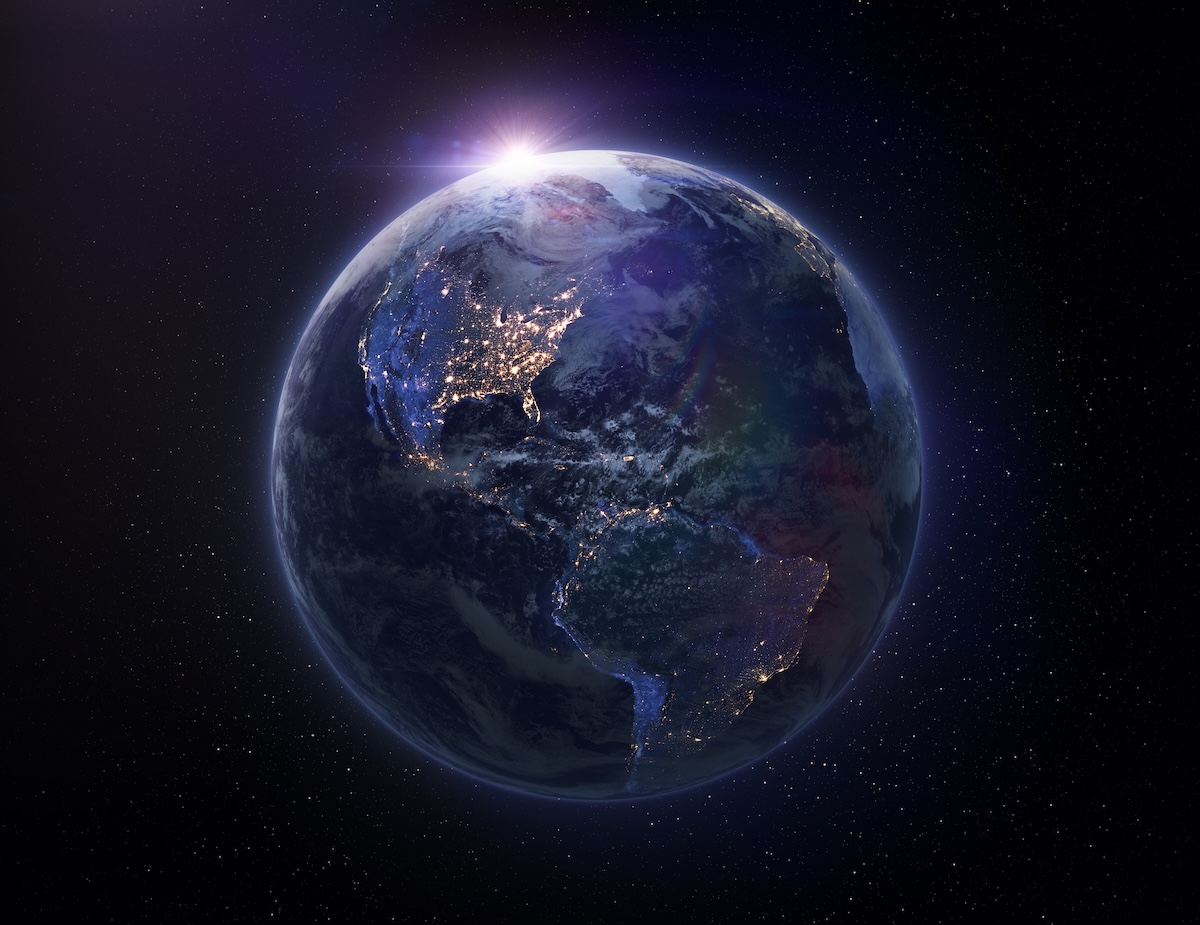Since the inception of ASCEND in 2020, a global community of emerging space trailblazers has taken the stage to pitch their vision for “Space for All.” In five years, the community has grown to 60 thought leaders. Their ideas are published in Op-Eds at ascend.events/outcomes/ascendants.
Program creator Moriba Jah, in an interview before this year’s final cohort, said, “What they share is a fire and a passion to be agents of change,” and to advocate for “regenerative, restorative, and just human space activity.” The Ascendants profiled below share how the program inspired their journey as space stewardship advocates.
2020 Cohort

Ruvimbo Samanga, Zimbabwe
Then: Research Fellow, Open Lunar Foundation
Now: Space Policy Analyst, Mandela Washington Fellow, Mandela Rhodes Scholar, and Ban Ki-moon Global Citizen, representing Africa’s emerging space voice across 20+ countries, delivering keynote lectures, writing widely published work, and contributing to international dialogues on space governance.
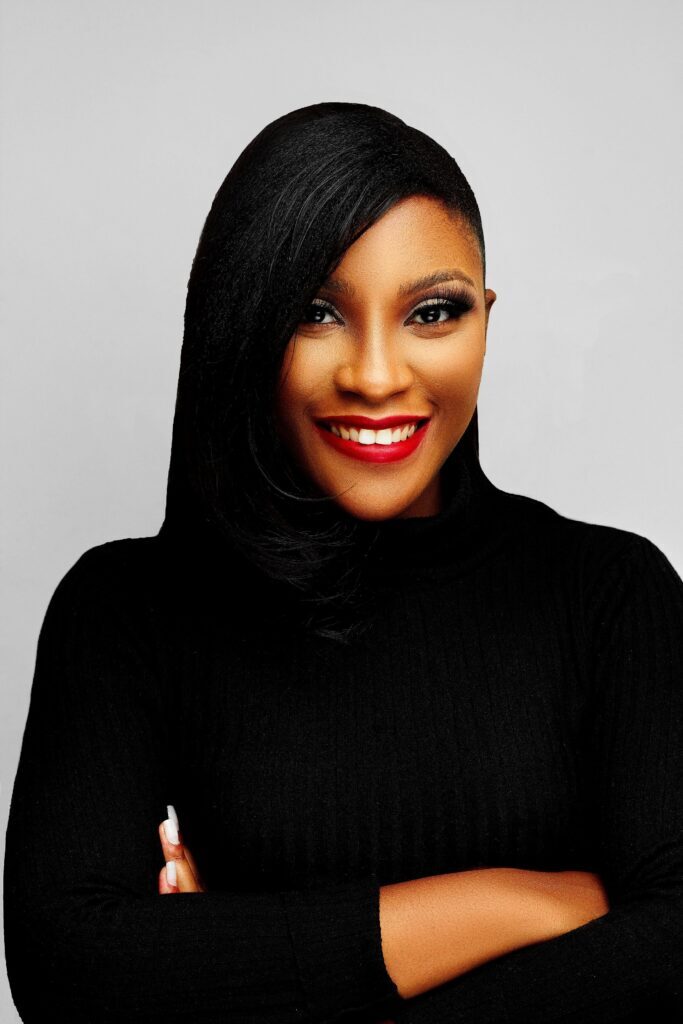
Inspiration: This was my first introduction to the world of effective stewardship of the space environment. I am inspired continuously by Moriba who has long advocated for traditional ecological knowledge. Knowledge that comes from indigenous communities holds unique value, as it is sustainable and adaptive in nature.
After ASCEND: I’ve contributed through thought leadership…to ensure that space remains coordinated and safe, through technical and policy rules alike. I had the honor of presenting novel research toward filling the current gaps in multilateral rules, including some definitional aspects like what space debris entails, and how this has an impact on collision avoidance and our ability to keep our space “highways” clean. In my role as a space policy analyst, I advocate for robust laws to serve multiple stakeholders…to make efficient and effective use of outer space and its benefits.
Final Word: Through science communication, we can…get more brilliant minds to work together through space to create a better world. We have the great responsibility of communicating the benefits of space to our communities, in a way that should inspire and evoke a desire to be a part of something that is truly bigger than us all.
2021 Cohort

Emma Cain Louden, USA
Then: Yale doctoral student coming out of the isolation of a global pandemic
Now: Astrophysicist, strategist and speaker / President, Slooh, bringing Earth and space to all ages through its network of telescopes and a gamified learning platform
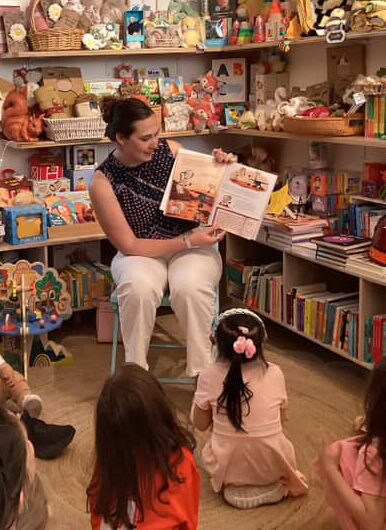
Inspiration: To solve the problem of space sustainability, you must bring the right people together and make them care about the issue. To do that you have to create empathy about the problem and the way that you do that is through storytelling.
After ASCEND: I began public speaking again, starting at the Jasper Dark Side Festival and including the TEDx talk. I created ASCEND’s Astrodebates with Rob Meyerson, now in its fourth year. More recently, I co-authored a children’s book called Mia and the Martians, a story about science that also teaches emotional resilience and emotional intelligence.
Final Word: I used to think we had to solve all of our problems, including sustainability on Earth first. In the last decade I realized that space can be a place to try new things, to learn from our past mistakes, and to evolve our understanding of how we live and work sustainably. There’s a real opportunity for the industry to say, “Here’s a really powerful place to be to learn how do we live more sustainably and learn from our mistakes to do better.”
2022 Cohort
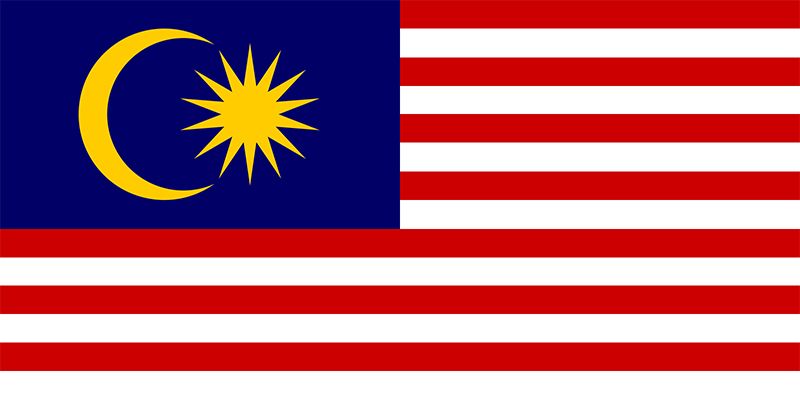
Uma Shangery Aruldass, Malaysia
Then: Member, Space Generation Advisory Council, and Revenue Management Specialist, global airline in Malaysia
Now: Continuing Airworthiness Manager, Asia Jet / in-demand speaker traveling to 16 countries talking on space debris and sustainability
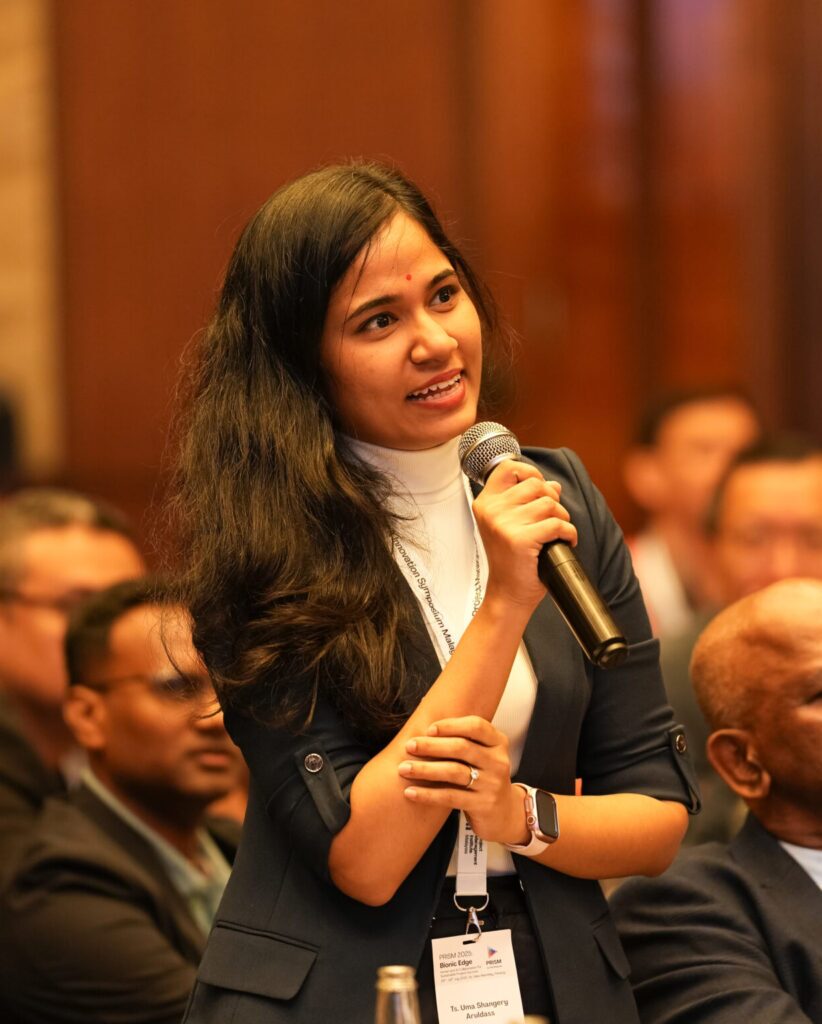
Inspiration: I studied aerospace engineering and completed my master’s in aviation management then landed a job in an international airline in Malaysia. I really wanted to be a part of a space program, but I didn’t know how. During COVID, I came across the Space Generation Advisory Council and became a member. I met like-minded people including Moriba Jah. His style completely blew me away. I read about space sustainability. Realizing that something I had always aspired to do was real—people were working on it—made me very excited.
After ASCEND: The [Ascendant] program was a life-changing moment. During COVID, I had shifted to work for the food and beverage industry. My employer’s parent company had a private jet business. I wrote about my Op-Ed on LinkedIn, and when my post went viral, the organization saw it and offered me a position there. For a woman in Malaysia to become an engineering manager was a big deal. I’m the only woman in my department and also the youngest on my team. I’m also working on my pilot project with one of the Malaysian universities on a mathematical model that can predict the probability of objects in space colliding.
Final Word: You don’t need to be an aerospace engineer to be a part of the space community or to contribute to space sustainability. I know Syahirah, a space artist and educator, who uses art to raise awareness about light pollution and advocates for protecting our dark skies, linking it to the wider challenges posed by space debris. She does it perfectly.
2023 Cohort

Yumna Majeed, Pakistan
Then: Founder, Exploration – Cosmos to Classroom, a Pakistan-based STEAM Education organization focused on outer space, astronomy, and space technology awareness
Now: Leading a K-12 STEAM Education Program at Pakistan’s largest aerospace technology park (NASTP)
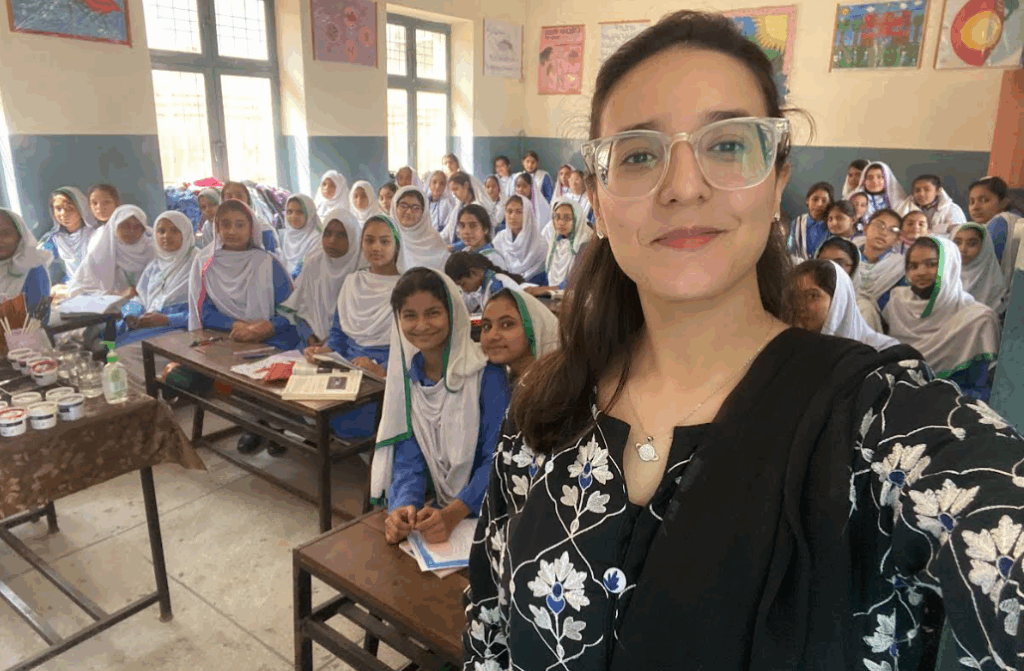
Inspiration: My first exposure to space traffic management was during IAC 2021 in Dubai, in a working group led by ESA. I was deeply inspired by Moriba Jah and his vision of space environmentalism, which emphasizes unity and shared responsibility in space. Coming from a non-technical background, I initially felt intimidated by the idea of presenting on a complex topic like space sustainability—but that challenge became my motivation. His work showed me that space isn’t just for engineers; it’s for everyone committed to a more sustainable and inclusive future. My essay focused on how to communicate the urgency of space debris to children, and in the process, I developed a deep appreciation for the broader implications of orbital debris, policy, and long-term space stewardship.
After ASCEND: This experience shifted my perspective. I began to see the strategic, policy-level changes needed to secure a sustainable space future. Since returning home, I’ve intentionally woven these insights into my talks and outreach. Today, I lead the K–12 STEAM Education Program at Pakistan Air Force’s NASTP—a platform that enables me to scale this mission nationally. It’s a responsibility I carry with pride. I’m designing programs that not only inspire curiosity, but also embed space policy, sustainability and systems thinking into early education. I’ve also set my sights on bringing AIAA to Pakistan—starting a chapter and exploring how Pakistani students can participate in AIAA’s Design/Build/Fly competitions.
Final Word: I’m proud to have helped build a space education ecosystem in Pakistan—one that will inspire young people to pursue technical space careers and contribute to our aerospace future. ASCEND gave me the confidence to explore what once felt out of reach. Now, I’m better equipped to shape Pakistan’s space future—by sparking ambition in classrooms and guiding decisions in education, policy and sustainability.
2024 Cohort

Salman Ali Thepdawala, Pakistan
Then & Now: Doctoral candidate & Munich Aerospace Scholar, University of Bundeswehr’s Department of Aerospace Engineering, focused on AI-based collision avoidance and satellite constellation management
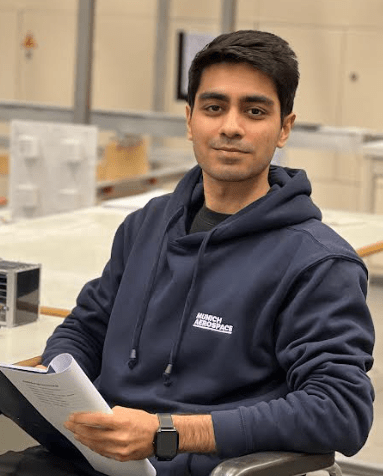
Inspiration: What really struck me during the experience was the diversity of perspectives. My background primarily is engineering and at most policy, but the perspectives of the cohort ranged from arts and policy to engineering and geopolitics and all approaching the same challenge of space stewardship, which reminded me that no single discipline or nation can solve this problem alone.
After ASCEND: I have been actively building on that momentum. I was honored to moderate the Space Generation Congress 2024 working group with the UK Space Agency before IAC in Milan. More recently, I co-moderated a roundtable at SG-Germany 2025 focused on the downstream market of satellite data and AI use cases. In parallel, I remain active in the Space Generation Advisory Council as partnerships lead in the Space Safety and Sustainability Project Group, as well as in the International Astronautical Federation and the Moon Village Association.
Building on ASCEND and the experiences since, I have gained a renewed purpose and motivation to continue to be a voice for sustainability More importantly, seeing the incredible work that other fellow cohorts are doing only drives home that true stewardship in space can only be achieved collectively across disciplines and nations.
Looking ahead, post-doctorate, I plan to transition fully into the space industry and make a meaningful impact on responsible space development.
Final Word: Space must be sustainable, inclusive and managed for the benefit of all humanity – not just a few powerful players.



